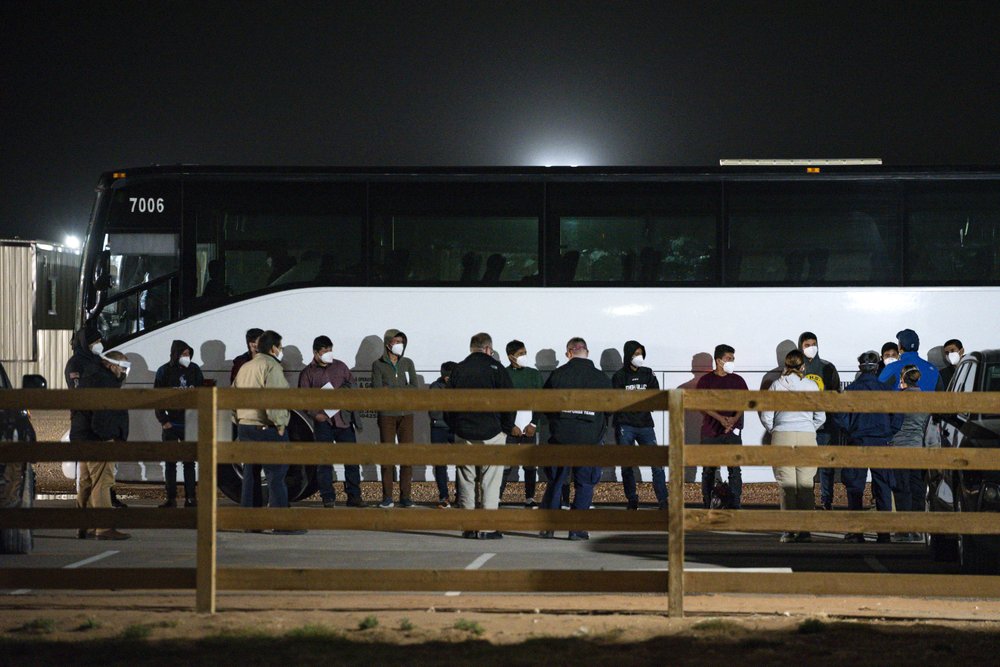Turning his back on numerous campaign promises, President Biden’s aversion to a formal press conference marks another entry in this year’s developing trend of political ambiguity and fuels the administration’s image of illusionary progress.
More than halfway through his first 100 days as the United States’ 46th commander-in-chief, Biden has yet to hold or even schedule an official press conference. On March 4, Biden participated in a virtual event alongside Speaker of the House Nancy Pelosi and other House Democrats to provide updates on the country’s battle against the pandemic as well as the administration’s vaccine rollout progress. The president’s call for Democrats to help “restore faith” in government was shortly thereafter followed by his disheartening, mumbled statement, “I’d be happy to take questions if that’s what I’m supposed to do, Nance. Whatever you want me to do.” Seconds after this sad utterance, the White House’s live feed was cut abruptly.
At the risk of sounding conspiratorial, it is becoming apparent that the administration is evading an extended interaction between the president and members of the nation’s free press. Biden has now gone longer than any of his 15 predecessors over the last 100 years in refraining from holding a formal press conference. Throughout the past week, stories criticizing or at the very least questioning the president’s absence from behind the press conference podium were published by Vox, CNN, Fox News and The Washington Post. Indicating the end of a largely sycophantic pro-Biden mainstream news cycle, the president now appears less favorable in overtly partisan media outlets and faces mounting levels of scrutiny from both Republicans and the nation’s progressives.
A Gallup poll from February found over 62% of U.S. adults believe both political “parties do such a poor job representing the American people that a third party is needed.” More interestingly, of those surveyed, a record-breaking 63% of Republicans now favor a third party. The spike in Republican support is likely a product of the Trump presidency, which was hailed as an alternative to the elitist political establishment in Washington D.C. Trump remains the figurative head of the GOP, which is largely problematic to more traditional Bush-esque members of the party, like Mitt Romney and Liz Cheney. Leading up to and in the weeks following Biden’s inauguration, rumors circulated that Trump was planning to start his own third party, but those were recently dismissed after the former president’s remarks at this year’s Conservative Political Action Conference (CPAC).
Aside from disenfranchised Republicans, liberal progressives who would have much rather elected an anti-establishment candidate like Bernie Sanders to the presidency, comparatively mimic Republican attitudes towards a third party. February’s Gallup poll additionally found “33% of Americans believe that the two major political parties are doing an adequate job representing the public.” This is crucially important, considering this is the smallest percentage of people expressing this view since the record-low 26% from October 2013. A third party could be a viable component of future U.S. elections, possibly as soon as 2024. If nothing else, these figures represent a bipartisan majority’s intentional push to effectively shift the current political dynamics.
This shifting political phenomenon is the least of the Biden Administration’s concerns. Surging numbers of people traveling from Mexico and Central American countries are attempting to cross the South-Western U.S. border. Kevin McCarthy, the top Republican in the House of Representatives, journeyed to El Paso, Texas, last week in response to the worsening migrant crisis. Speaking to members of the press, McCarthy said, “I came down here because I heard of the crisis, it’s more than a crisis. This is human heartbreak.” Biden has received written demands from Liz Cheney and 51 other Republicans calling for a briefing on the border situation by the Department of Homeland Security. Over 9,500 unaccompanied children have arrived at the border, making this a 20-year peak in mass border crossings. As of March 14, over 4,200 children reside in U.S. Customs and Border Protection detention centers. According to a BBC report, this is a “31% uptick from less than a week earlier, when 3,200 migrant children – mostly from Central America – were reported to be in U.S. custody.” The report also mentions that nearly 3,000 of the detained children have been held in U.S. custody longer than the legal 72-hour period.
U.S. Customs and Border Protection reported a total of 100,441 people attempting entry across the southern border in February alone. This was a 28% increase from January and outnumbers 37,000 during February 2020, and 76,500 during the same month in 2019. Undoubtedly, this humanitarian crisis affects the entire nation, but especially the Lone Star State and warrants immediate corrective action from the president. Speaking to members of the press last week, Texas Gov. Greg Abbott said, “This crisis is a result of President Biden’s open border policies.” He later disclosed figures reported to him during a meeting with border patrol officials, saying that in 2021 alone, “there have been more than 800 criminal aliens apprehended,” who he specified as those who were “violent criminals who had been previously arrested in the United States and deported, who came across the border again.” Abbott said among those apprehended, there were over 78 sex offenders and 62 gang members, including those affiliated with the infamous MS-13. The governor issued a warning saying, “Cartels are ramping up trafficking across the border, they’re exploiting women and children and they are overwhelming border patrol resources.”
There is also an ongoing crisis in the city of Portland, Oregon, where riots similar to those of 2020 have once again broken out. Following the death of George Floyd in Minneapolis, many protests across the nation devolved into felonious behavior. For over nine months now, protestors in Portland also referred to as “anarchists,” wreaked havoc on the city and targeted the federal courthouse. According to the National Review, “Rioters gathered to attack the courthouse for weeks during the summer of 2020, and have also marched on Mayor Ted Wheeler’s home. City police spent almost $8 million responding to the riots, making over 900 arrests throughout 120 consecutive days of unrest.” A fence was later erected to prevent further acts of destruction and desecration from protesters.
On March 12, just one day after the fence was taken down, protesters reignited their dangerous feud with the police and set the downtown courthouse on fire. Videos quickly began circulating from independent journalists on the scene, which features protestors chanting, “f— the United States!” while forcefully attempting to enter the courthouse earlier in the day. Later that evening, the protesters rallied together and began setting the building ablaze before Portland’s riot police responded. Speaking at a news conference on Monday, March 15, Portland Mayor Ted Wheeler stated, “The community is sick and tired of people engaging in criminal destruction and violence and doing it under the guise of some noble cause”.
Many of the obstacles facing the Biden Administration are self-induced. Considering Biden’s recently passed American Rescue Plan fails to deliver on the promised $2,000 stimulus checks and provide a previously promised $15 minimum wage, Americans are entirely justified in their frustrations. The bulk of Biden’s work as commander-in-chief is solely oriented on eradicating Trump’s presidential legacy. One thing remains certain: the president’s continued avoidance of the country’s newsgathering body is less than encouraging and more than concerning.














Be First to Comment